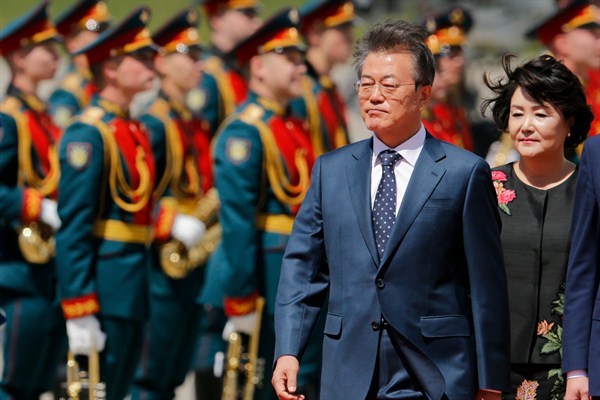South Korean President Moon Jae-in returned from a three-day visit to Russia on Sunday, the first South Korean leader to make a state trip there since 1999. In Moscow, Moon addressed the State Duma, the lower house of Russia’s parliament, held talks with President Vladimir Putin, and signed agreements to expand economic cooperation. He capped off the visit with a World Cup match between South Korea and Mexico in the southern port city of Rostov-on-Don.
Putin’s aims in hosting Moon seem straightforward enough. He wants to mitigate the hostility he faces from the West by reaching out in the other direction, mainly to China. But in order to avoid being overwhelmed by Beijing’s growing gravitational pull, Putin must strengthen links with South Korea and Japan, as well as India to the south. Putin is also maneuvering to try and decisively shape the future of the Korean Peninsula in Russia’s favor, amid all the international attention on Pyongyang’s diplomatic outreach to both Seoul and Washington. Accordingly, he recently invited North Korean leader Kim Jong Un to visit Moscow, too.
Moon’s motivations require a bit more probing. By making the trip, Moon showed more willingness to “normalize” Putin than most other democratic leaders—U.S. President Donald Trump being the scandalous exception. Unlike most of his Western counterparts, Moon sees Russia not as a threat to democracy or a human rights concern, but as a crucial partner in an attempt to overhaul South Korea’s strategic and economic alignments.

